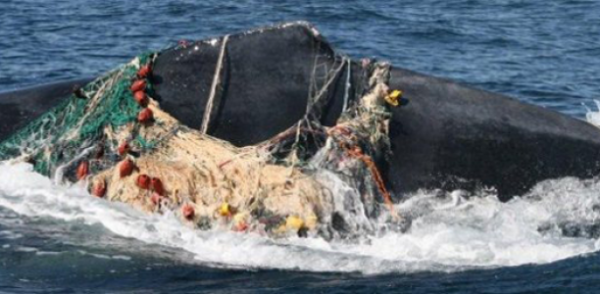Next steps in work to understand and mitigate the threat
to cetaceans from marine debris
The IWC is hosting the next workshop in a series aiming to understand and address the threat to cetaceans from marine debris.
Marine debris ranges from glass, metal, plastics and wood and includes abandoned or otherwise lost fishing gear. Much is synthetic and may endure for hundreds of years. Different materials can threaten cetaceans, and other marine life in different ways. The IWC has embarked on a number of related initiatives to understand and mitigate potential threats from a range of different types of debris, from entanglement in fishing nets to microplastics, and this is the IWC’s third international expert workshop addressing this wide-ranging topic.
The first workshop was scientifically focused, analysing the different threats, knowledge gaps and further research requirements. The second event was policy-led, agreeing practical, management actions that the IWC could take in order to contribute its expertise most effectively to the each of the range of global initiatives on marine debris. This third workshop will assess latest information on ingestion, entanglement, microdebris and toxicology.
The group also now aims to identify protocols to ensure consistent information is obtained in future, including pathology for ingestion and microdebris, and standardised classification of recovered debris. Opportunities to liaise with other expert bodies and share information and any lessons from other species will also be discussed.
The workshop is being held at La Garriga, a small spa town north of Barcelona, from 3-5 December, immediately before the World Marine Mammology Conference.
To read the report of the first workshop (2013) on marine debris click here.
To read the report of the second workshop (2014) on marine debris click here.
To read more about entanglement click here.
To read more about microplastics and the Pollution 2020 Programme click here.

